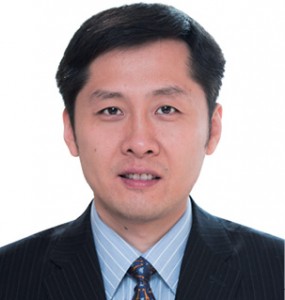The issue of insufficiently intense civil judicial protection of intellectual property (IP) has long drawn attention. This has mainly been manifested as follows: (1) difficulty in adducing the evidence relating to the compensation of losses, such that, after the rights holder prevails at trial, the measure of damages is usually insufficient to make up the actual losses incurred by the rights holder, and is sometimes even less than reasonable expenditures incurred by the rights holder in safeguarding his or her rights; and (2) the rights holder is powerless to timely and effectively put a stop to the infringement and is only able to compel the infringer to do so after the entry into effect of the judgment, with some rights holders losing their competitive advantages even before securing a winning judgment.

Senior Associate
Rui Bai Law Firm
These issues not only reduce rights holders’ willingness to safeguard their rights, but also further embolden infringers. Insufficient protective efforts not only make it impossible for China to demonstrate to the world a resolute stance on performing its IP protection obligations, but also make it impossible to provide sufficient assurance for the transformation of China into an “innovative” country. As a long-time IP practitioner, the author has noticed that the above-mentioned issues are not new and have drawn the attention of legislative and judicial authorities. In 2016, the author noticed that certain typical cases (summarized below) have shown signs that judicial authorities are further intensifying their efforts to protect IP:
Application of the system of “impediments to the adducement of evidence” leads to repeated record breaking for damages awarded for infringement.
In Maco Group Co Ltd v Beijing Xiujie Xinxing Building Materials et al, a case involving infringement of the exclusive right to use a registered trademark, and in Beijing Watchdata System v Hengbao, an invention patent infringement case, the Beijing Intellectual Property Court (BIPC) rendered, in November and December 2016, respectively, judgments awarding damages of RMB10 million (US$1.45 billion) and RMB50 million, respectively, rewriting the record for compensation by that court in two consecutive cases.
“Impediments to the adducement of evidence” is a system designed to address the difficulty that plaintiffs face in adducing evidence for compensation for infringement: namely, once the plaintiff has used its best efforts to provide evidence, the plaintiff is generally deemed to have fulfilled its attendant burden of proof, and it is additionally assumed that the defendant has in its possession the account books and documentation relating to the infringement, so an obligation of providing such evidence is imposed on it. If the defendant fails to submit the evidence, the court may order the defendant to provide it, and if the defendant still refuses, or provides false evidence, the court may determine the measure of damages on the basis of the evidence and claims submitted by the plaintiff. That relatively large damages were awarded in the above-mentioned two cases is down to the application by the court of the system of “impediments to the adducement of evidence”.
Lawyers’ fees are a major constituent part of a rights holder’s reasonable expenditures for safeguarding its rights, and billing by the hour has secured the support of the courts.
Lawyers’ fees will normally account for a relatively large percentage of the expenditure of the rights holders in safeguarding their rights, and as reasonable expenditure they should be reimbursed in full after prevailing in court. However, from past judicial practice, it can be seen that, although fees of Chinese lawyers are substantially trailing the international level, the instances where the lawyers’ fees actually claimed by a rights holder have been upheld in full are still quite rare, with the reasonable expenses upheld by the court at times markedly lower than the lawyers’ fees actually expended by the rights holder.
In Beijing Watchdata System v Hengbao, not only did the BIPC count the lawyers’ fees of RMB1 million into the measure of damages in full, it also recognized hourly billing, a common billing method in legal circles, for the first time. More important is the further clarification of factors for considering the reasonableness of the expenditures of lawyers’ fees in terms of the necessity of representation in cases, the difficulty of a case, and what is actually expended by counsel in the case, providing valuable reference for reasonably determining the amount of lawyers’ fees in other cases.
More active application of temporary injunction relief measures
The temporary injunction relief system is expressly provided for in the 2012 version of the Civil Procedure Law: a court may, in a case where the act of a party or other reason could make enforcement of the judgment moot or cause other damage to a party, render a ruling, pursuant to an application by the other party, ordering preservation of the former party’s property, or ordering it to do something or prohibiting it from doing something. The ordering it to do something or prohibiting it from doing something is what is known as “temporary injunction relief”. The rate at which courts supported applications for such relief in past few years was low, with the situation only changing in recent years. In 2016, the BIPC issued its first pre-trial injunction in “The Voice of China” case, a dispute over the rights to the name of this TV singing contest. The ruling was rendered before the plaintiff instituted its legal action and just at the point where the defendant was to begin programme production for the new season, agreeing, it goes without saying, with the plaintiff’s intent. Additionally, in Zhejiang Taobao Network Limited et al v Beijing Smart Dog Network Technology et al, an unfair competition case, in which the author acted as counsel in 2016, an interlocutory application for temporary injunction relief was supported by the court, presenting the author with the opportunity to personally experience the change in attitude of Beijing courts toward injunction applications.
Through the study of typical cases, the author argues that IP rights holders have reason to be optimistic that IP protection in China is being enhanced. However, whether it is the application of the system of impediments to the production of evidence, the upholding of lawyers’ fees in full, or the application of temporary injunction relief, all are still reliant on the necessary production of evidence by, and the claims of, the rights holder. Only the combination of a favourable judicial environment and the subjective proactivity of a rights holder can cause IP rights holders to achieve greater effectiveness in future rights defence actions.
Han Yufeng is a senior associate at Beijing Rui Bai Law Firm
北京瑞栢律师事务所
BEIJING RUI BAI LAW FIRM
中国北京朝阳区东三环中路7号
北京财富中心写字楼A座37楼3702室 邮编:100020
Room 3702, 37/F Office Tower A
Beijing Fortune Plaza, 7 Dongsanhuan Zhong Road
Chaoyang District, Beijing 100020, China
电话 Tel: +86 10 6533 3300
传真 Fax: +86 10 6533 3000










